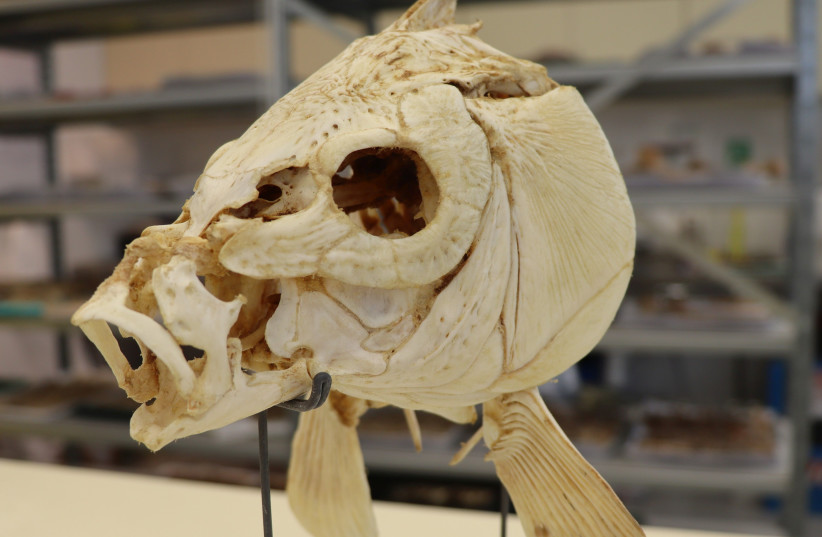Researchers at the Hebrew University of Jerusalem (HU), Tel Aviv University (TAU), and Bar-Ilan University (BIU) have found evidence that fire was used to cook food up to 780,000 years ago, a new study shows.
The study, published in the peer-reviewed scientific journal Nature Ecology and Evolution, features an analysis of the remains of a carp-like fish found at the Gesher Benot Ya’aqov (GBY) archaeological site in Israel.
By studying the structure of the crystals that form enamel in the fish’s teeth (whose size increases through exposure to heat), researchers were able to prove that the fish were exposed to temperatures suitable for cooking – and not simply burned by a spontaneous fire.
“This study demonstrates the huge importance of fish in the life of prehistoric humans, for their diet and economic stability,” TAU’s Steinhardt Museum of Natural History researcher Dr. Irit Zohar and Hebrew University's Institute of Archaeology’s Dr. Marion Prevost.
Researchers believe that the fish was cooked roughly 780,000 years ago. Until this discovery by Israeli researchers, the earliest recorded evidence of fire being used to cook food was from roughly 200,000 years ago.

“The large quantity of fish remains found at the site proves their frequent consumption by early humans, who developed special cooking techniques. These new findings demonstrate not only the importance of freshwater habitats and the fish they contained for the sustenance of prehistoric man, but also illustrate prehistoric humans’ ability to control fire in order to cook food, and their understanding of the benefits of cooking fish before eating it,” Zohar and Prevost declared.
The significance of cooking food
Researchers around the world have theorized that exploiting fish in freshwater habitats was the first step in prehistoric humans’ route out of Africa. Humans began to eat fish around 2 million years ago, but cooking food is seen as the innovation that helped humans evolve into a more intelligent species.
Eating cooked food reduces the bodily energy required to break down and digest food, allowing other physical systems to develop. Eating cooked food also led to changes in the structure of the human jaw and skull, changing the lives of humans who used to spend most of their time hunting and digesting raw food.
“The use of fire is a behavior that characterizes the entire continuum of settlement at the site,” explained Prof. Nira Alperson-Afil of Bar Ilan University. “This affected the spatial organization of the site and the activity conducted there, which revolved around fireplaces.”
The research team believes that the location of freshwater areas, some of them in areas that have long since dried up and become arid deserts, determined the route of the migration of early man from Africa to the Levant and beyond. Not only did these habitats provide drinking water and attracted animals to the area, but provided an abundance of nutritious, easily-caught fish.
“Gaining the skill required to cook food marks a significant evolutionary advancement"
-Prof. Naama Goren-Inbar, Hebrew University
“The fact that the cooking of fish is evident over such a long and unbroken period of settlement at the site indicates a continuous tradition of cooking food,” director of the excavation site and Hebrew University Prof. Naama Goren-Inbar said. “Gaining the skill required to cook food marks a significant evolutionary advancement, as it provided an additional means for making optimal use of available food resources. It is even possible that cooking was not limited to fish, but also included various types of animals and plants.”
